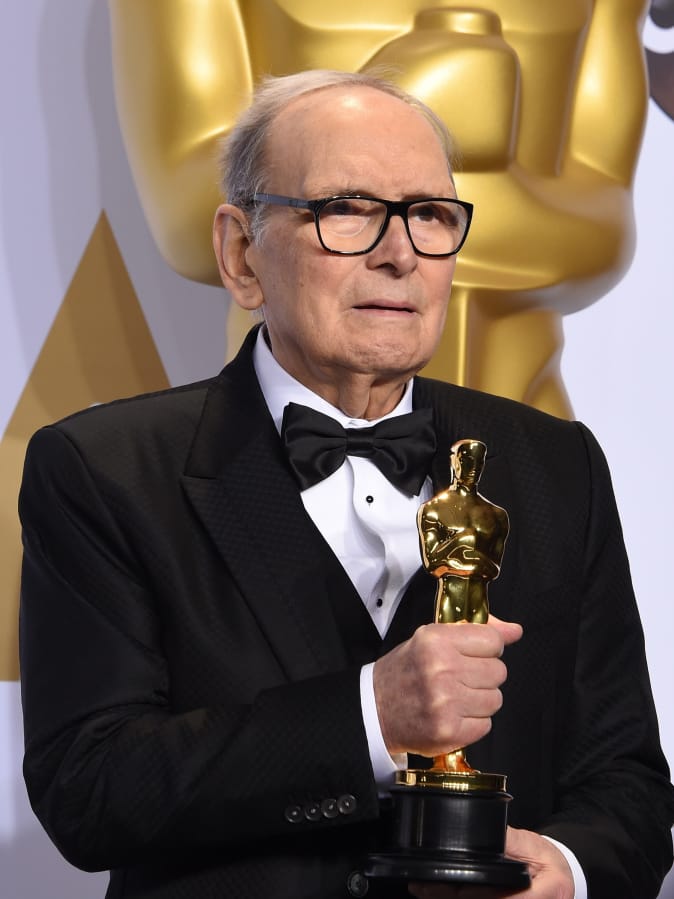A maestro has passed, at the age of 91.
For someone who lived a happily long and abundantly creative, improbably productive life, the composer Ennio Morricone has been preparing for his final bow for decades now, through his music. He was both a chameleon and a paradox, an exuberant spirit who had a unique dramatic understanding of the elegiac. His music of mourning, of farewells, lifted audiences to transcendence and beyond, and if that sounds overblown, well, that’s the Morricone style: bigger, more outlandish, sometimes, than other composers would dare attempt.
The directors and the films for which he’s best known bid farewell to so much. His music said goodbye to a film genre and an American West that never really was (“Once Upon a Time in the West,” with Charles Bronson an on-screen, harmonica-playing Morricone corollary). It complemented a martyr’s cause (“The Mission,” for which Leone believed he should’ve won the Oscar _ he ended up winning a generation later for “The Hateful Eight,” an infinitely better score than movie). It honored the life of an ordinary soldier caught in a moral nightmare (“Casualties of War”). He loved scrambling his influences and delighted in cross-currents.
The great Chicago-set soundscape of “The Untouchables” sounds like a Sergio Leone spaghetti Western, and yet the movie’s 1930 gangland Chicago trappings are unthinkable without Morricone’s splendidly rousing contributions. Reading some of the comments early Monday morning on YouTube, after news of the composer’s death, the impact of his work came through so very clearly. A truck driver, who wrote of working 16-hour days six days a week for 25 years, said this of the Morricone main theme from “The Mission”: “Listening to this every night is what keeps me going. His music is a gift from God.”
Two months ago, on the same thread, an Italian health care worker wrote of the same theme: “I’m working 12 hours every day against this coronavirus, and Morricone’s music helps me to feel better after a very hard day in hospital.” It’s one legacy among many others for a great film composer: to offer solace for characters on screen and, by extension, for the listener.



